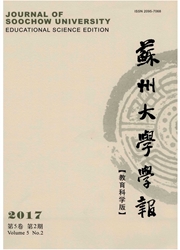

 中文摘要:
中文摘要:
从社会心理学的两种内隐理论出发,通过考察民众对社会与文化变迁的信念,解释近代以来古今中西文化论争所反映的几种对中国文化和现代化的主要态度。民众对中国社会和中国人从过去到未来变迁的认知具有三种特征:传统与现代逐渐融合;积极指标总体线性增长;好与坏相互激荡凸显社会活力。民众的中国文化本质论由实体论和不变论两个维度构成,实体论认为中国文化与西方文化有本质的不同,不变论认为中国文化不可改变;实体论是对中国文化持积极态度的基础,但只有结合不变论,才能解释对中国文化的否定和肯定态度。社会变迁认知和中国文化本质论,从内隐理论的不同角度共同揭示了中国人在近代中国文化受西方文化冲击背景下,应对中国文化认同危机的心理机制及其对全球化时代新的意义。
 英文摘要:
英文摘要:
On the basis of two implicit theories of psychology, the authors identified three attitudes to Chinese culture and the orientation of modernization as shown by the antiquity-modernity and China-West controversies, and, through a discussion of social change and cultural change, predict these attitudes. People's cognition of social change from ancient China to future China has three basic patterns: the integration of tradition and modernity, the linear growth of the overall positive indicators, and the demonstration of social volatility through both positive and negative aspects. People's view of the nature of Chinese culture lies in their cultural essentialism and their belief in cultural immutability. The essentialism belief holds that the nature of Chinese culture is different from that of Western culture. The immutability belief holds that Chinese culture is immutable. The former guarantees the Chinese favorable attitudes to Chinese culture. However, the positive and negative attitudes to Chinese culture can be predicted only by considering the both theories. Social change beliefs and Chinese cultural essentialism offer a comprehensive explanation to the psychological coping process of the Chinese who face the influence of Western culture since the modern times.
 同期刊论文项目
同期刊论文项目
 同项目期刊论文
同项目期刊论文
 期刊信息
期刊信息
